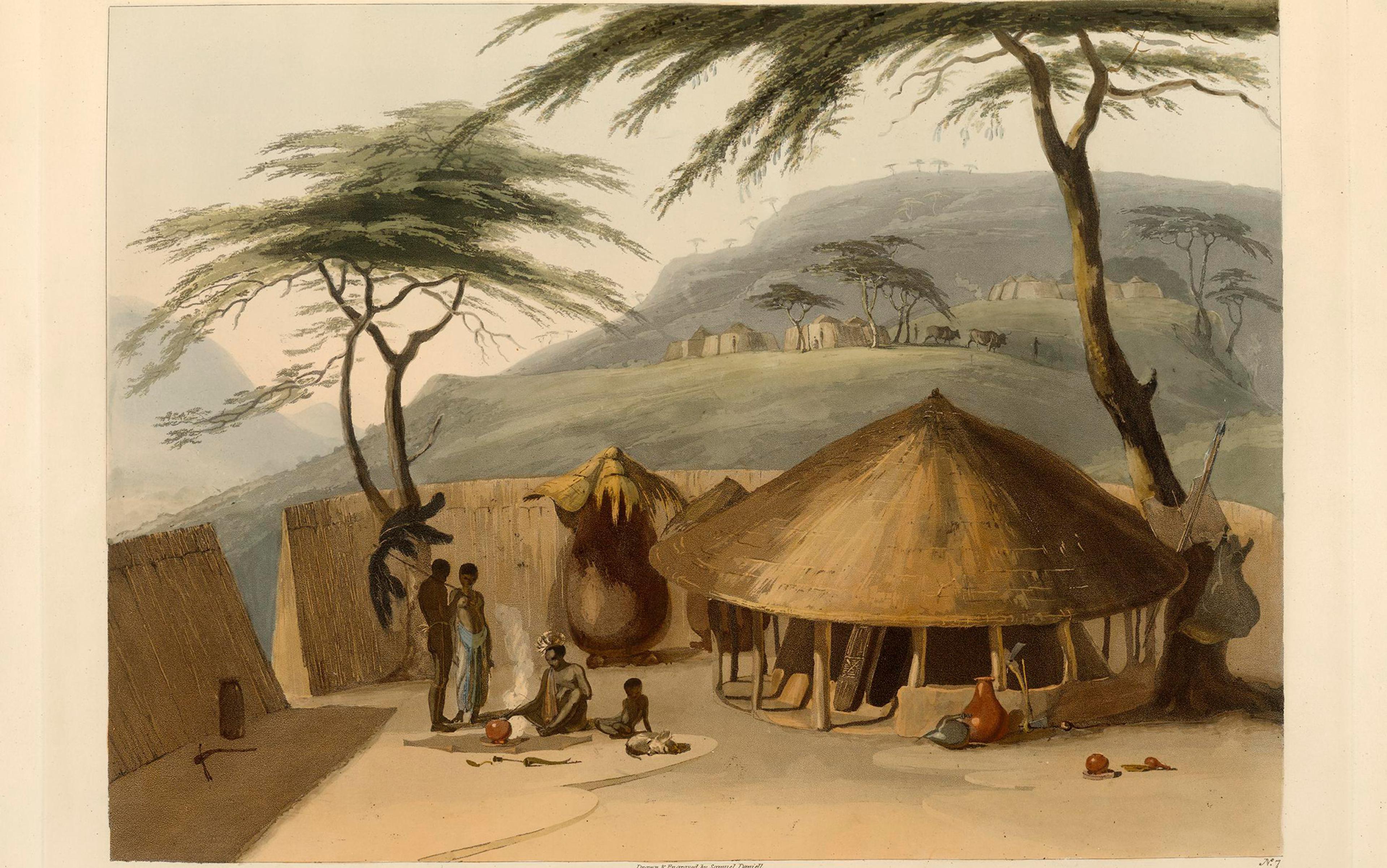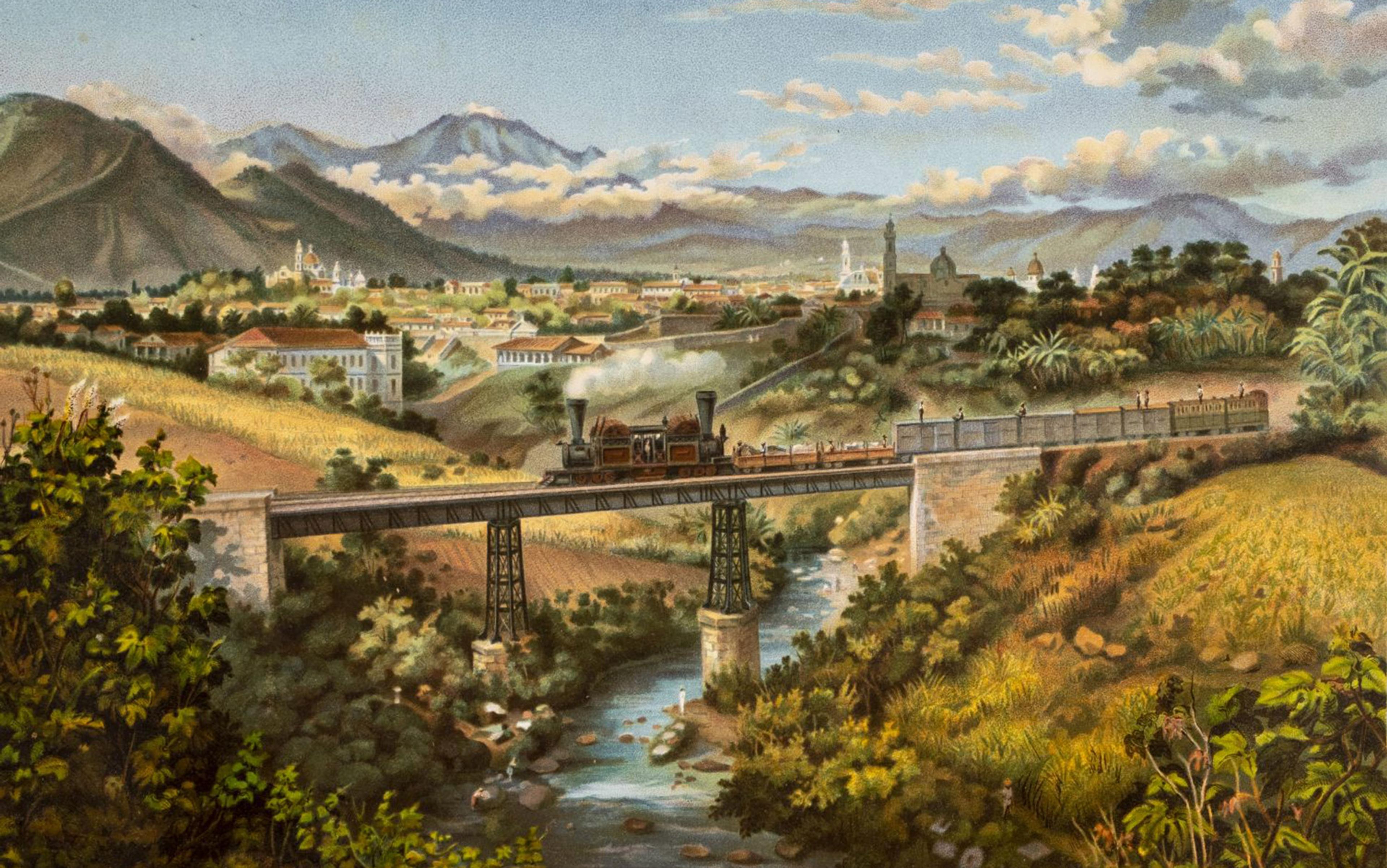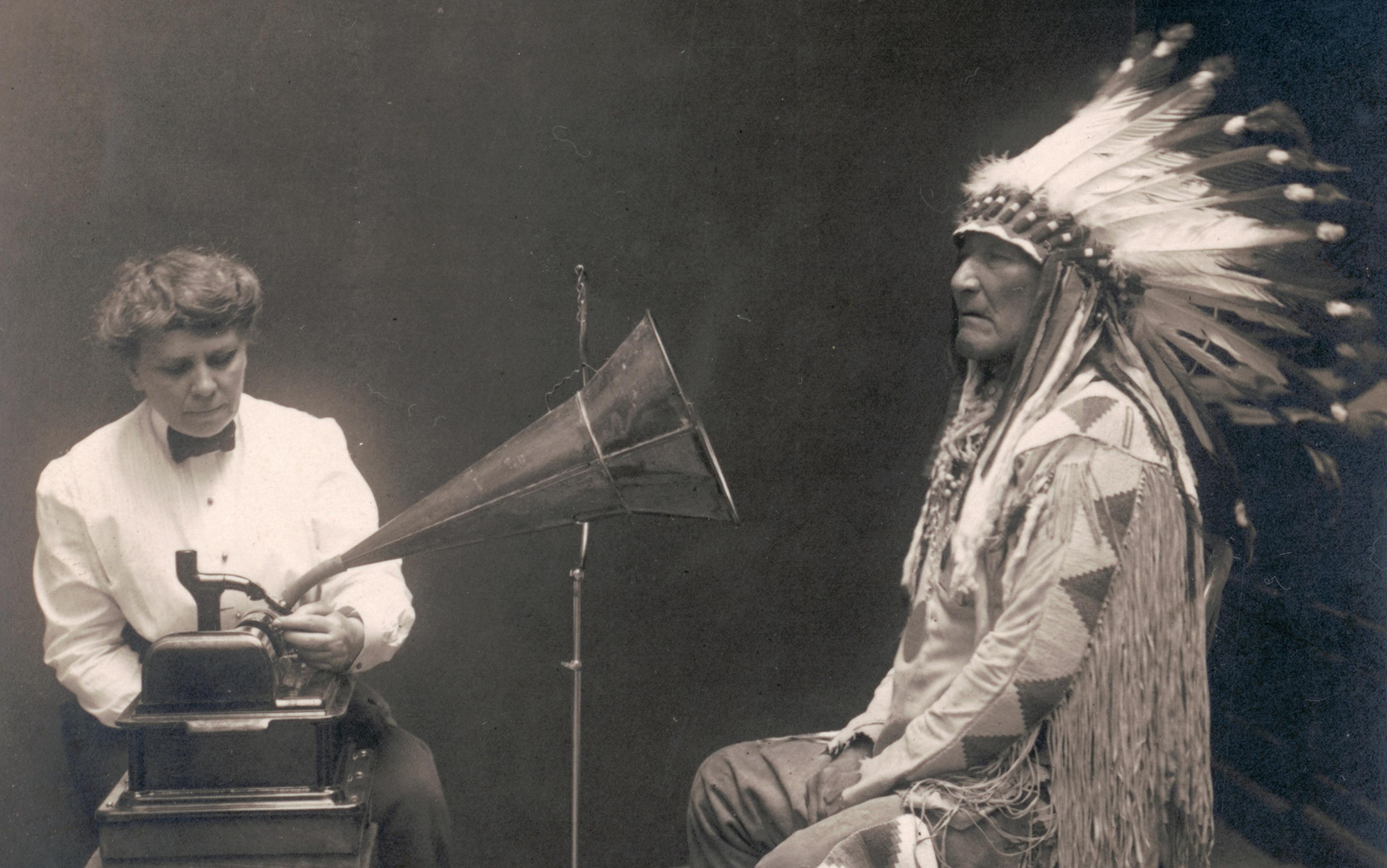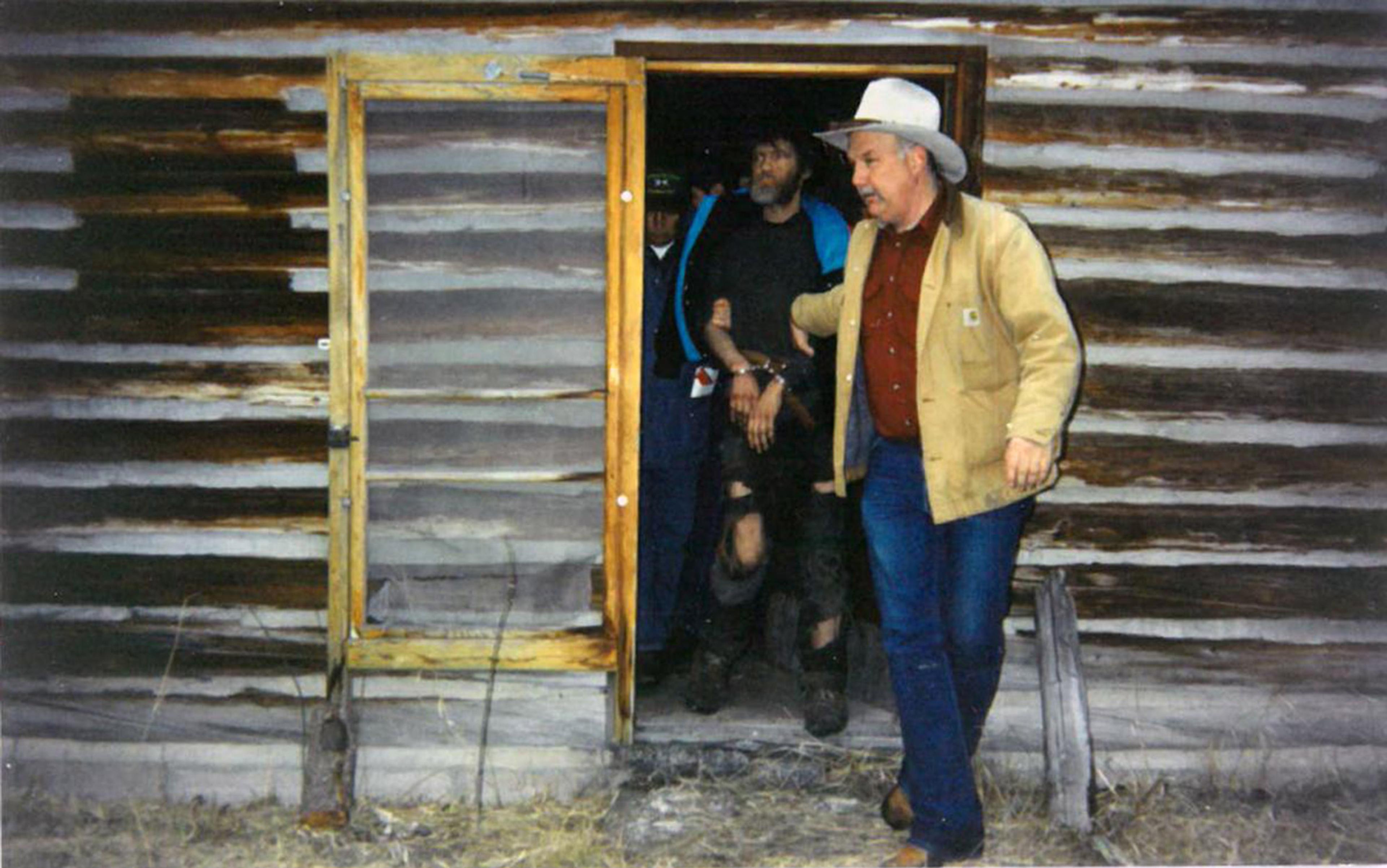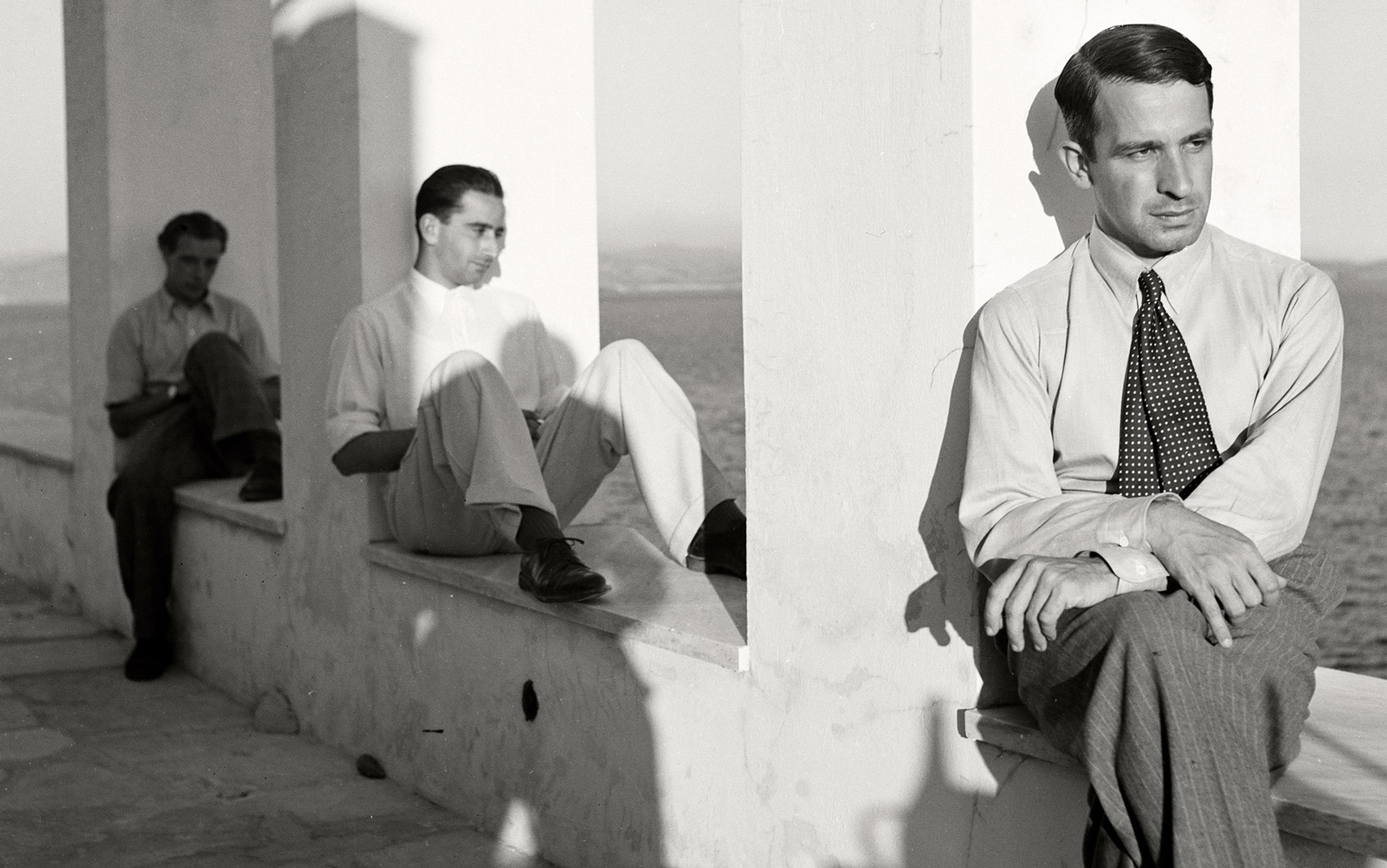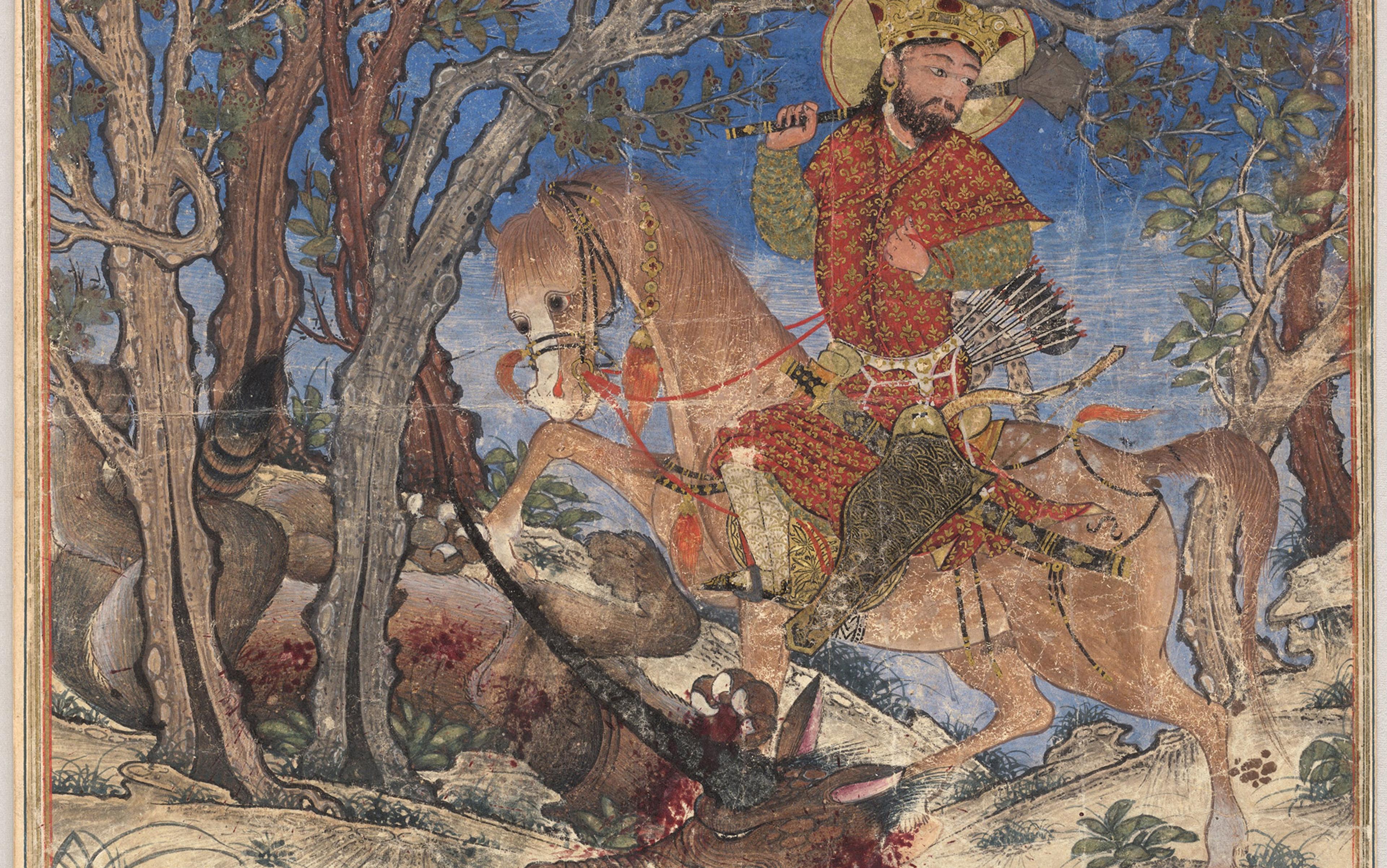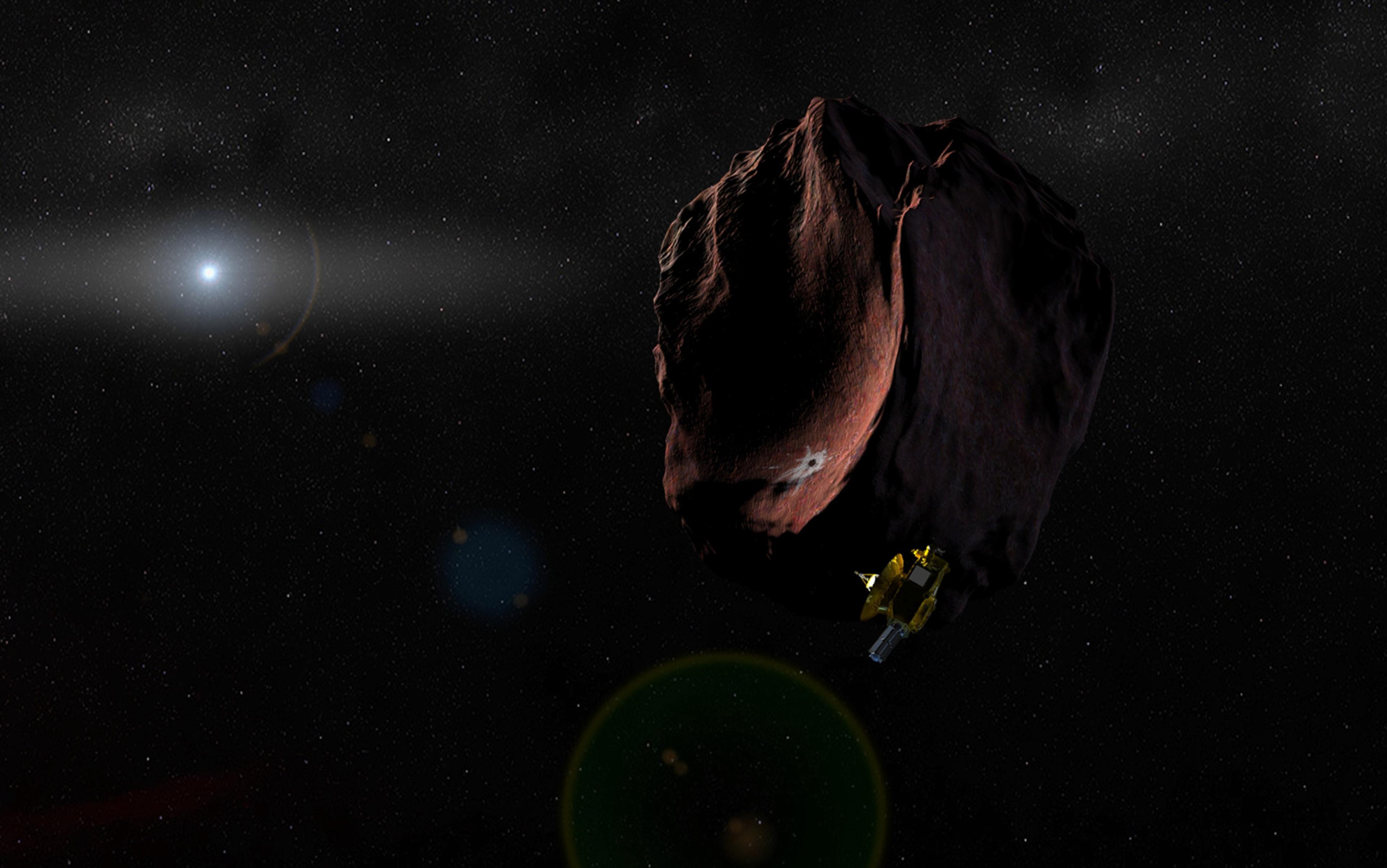Karl Marx died on 14 March 1883. At the funeral three days later, Friedrich Engels wasted little time on their 40-year friendship, focusing instead on Marx’s legacy. ‘Just as Darwin discovered the law of development of organic nature,’ Engels said, ‘so Marx discovered the law of development of human history.’ His friend had died ‘beloved, revered and mourned by millions of revolutionary fellow-workers – from the mines of Siberia to California, in all parts of Europe and America … His name will endure through the ages, and so will his work!’
Engels made sure of this. In the following years, he devoted himself to organising and publishing Marx’s ideas. From a mélange of fragments and revisions, he produced the second and third volumes of Das Kapital, in 1885 and 1894 respectively. He meant to publish a fourth but died before he got to it. (It was later published as Theories of Surplus Value.) Still, the most peculiar project born from Marx’s notes was released a year after his death. Engels titled it The Origin of the Family, Private Property and the State. I’ll call it The Origin, for short.
The Origin is like Yuval Noah Harari’s blockbuster Sapiens (2014) but written by a 19th-century socialist: a sweeping take on the dawn of property, patriarchy, monogamy and materialism. Like many of its contemporaries, it arranged societies on an evolutionary ladder from savagery to barbarism to civilisation. Although wrong in most ways, The Origin was described by a recent historian as ‘among the more important and politically applicable texts in the Marxist canon’, shaping everything from feminist ideology to the divorce policies of Maoist China.
Of the text’s legacies, the most popular is primitive communism. The idea goes like this. Once upon a time, private property was unknown. Food went to those in need. Everyone was cared for. Then agriculture arose and, with it, ownership over land, labour and wild resources. The organic community splintered under the weight of competition. The story predates Marx and Engels. The patron saint of capitalism, Adam Smith, proposed something similar, as did the 19th-century American anthropologist Lewis Henry Morgan. Even ancient Buddhist texts described a pre-state society free of property. But The Origin is the idea’s most important codification. It argued for primitive communism, circulated it widely, and welded it to Marxist principles.
Today, many writers and academics still treat primitive communism as a historical fact. To take an influential example, the economists Samuel Bowles and Jung-Kyoo Choi have argued for 20 years that property rights coevolved with farming. For them, the question is less whether private property predated farming, but rather why it appeared at that time. In 2017, an article in The Atlantic covering their work asserted plainly: ‘For most of human history, there was no such thing as private property.’ A leading anthropology textbook captures the supposed consensus when it states: ‘The concept of private property is far from universal and tends to occur only in complex societies with social inequality.’
Historical narratives matter. In his bestseller Humankind (2019), Rutger Bregman took the fact that ‘our ancestors had scarcely any notion of private property’ as evidence of fundamental human goodness. In Civilized to Death (2019), Christopher Ryan wrote that pre-agricultural societies were defined by ‘obligatory sharing of minimal property, open access to the necessities of life, and a sense of gratitude toward an environment that provided what was needed.’ As a result, he concluded: ‘The future I imagine (on a good day) looks a lot like the world inhabited by our ancestors…’
Primitive communism is appealing. It endorses an Edenic image of humanity, one in which modernity has corrupted our natural goodness. But this is precisely why we should question it. If a century and a half of research on humanity has taught us anything, it is to be sceptical of the seductive. From race science to the noble savage, the history of anthropology is cluttered with the corpses of convenient stories, of narratives that misrepresent human diversity to advance ideological aims. Is primitive communism any different?
According to the Aché, former hunter-gatherers living in Paraguay, they first met Kim Hill when he was a child. They adopted him, raised him, and taught him their language. Hill, however, remembers their first encounter differently. It was Christmas of 1977. He was 24 years old. He had persuaded the Peace Corps to fly him out to a Catholic mission with newly contacted hunter-gatherers. A priest welcomed Hill, but ‘he had a lot of duties across the border in Brazil,’ Hill told me. ‘So he drove me into the mission, dropped me off, and said “Here’s the keys to my house.”’ Then the priest left for two weeks. Thus began ‘the most exciting, fun adventure I could imagine’.
The Aché that Hill first met had recently been contacted and settled at the mission. They didn’t know how to farm, so they regularly packed up and headed to the forest, sometimes for weeks at a time. The priest warned Hill not to join them. ‘He said: “You don’t have enough skills – it’s really rough – they’re going to walk really far – you won’t be able to eat the food” – blah blah blah.’ So, ‘of course, the first thing I did was ignore his advice completely.’
The first trip was tough. The Aché didn’t have clothes, so Hill went barefoot and wore nothing but gym shorts. The forest shredded his feet. Vines and spiny plants lacerated his legs. He later wrote in his diary: ‘I have seen my blood every single day for the past month.’ At night, the Aché slept on the ground. Struggling to keep warm, children crawled on Hill, making it hard to catch more than 10 minutes of sleep. He enjoyed hunted meat, but he was less prepared for the hundreds of fat palm larvae sitting between him and starvation.
Men were forbidden from eating meat they’d acquired. Their wives and children got no more than anyone else
It was on that first trip that Hill saw the Aché share their meat. A man returning from a hunt dropped an animal in the middle of camp. Another person, the butcher, prepared piles for each family. A third person distributed. ‘At the time, it seemed kind of logical to me,’ Hill said. The scene reminded him of a family barbecue where everyone gets a plate.
Yet the more he lived among the Aché, the more astonishing food-sharing seemed. Men were forbidden from eating meat they’d acquired. Their wives and children received no more than anyone else. When he later built detailed genealogies, he discovered that, contrary to his expectations, bandmates were often unrelated. Most importantly, food-sharing didn’t just happen on special days. It was a daily occurrence, a psychological and economic centrepiece of Aché society.
What he started to see, in other words, was ‘almost pure economic communalism – and I really didn’t think that was possible.’
Hill’s first trip to Paraguay got him hooked on anthropology. After the Peace Corps, he returned to the United States and wrote a PhD thesis on Aché foraging. Now, four decades later, he is professor of anthropology at Arizona State University and renowned for his work on hunter-gatherers and remote peoples. According to his CV, he has spent 190 months – nearly 16 years – conducting fieldwork.
Not all of that has been with the Aché. In 1985, he started working with another group, the Hiwi of Venezuela. He didn’t expect dramatic differences from the Aché. The Hiwi, too, were hunter-gatherers. The Hiwi, too, lived in lowland South America. Yet Hiwi society felt like a new world. The Aché lived in mobile bands of 20 to 30 people. The Hiwi lived in villages of more than 100 people for most of the year. The Aché neither did drugs nor danced. The Hiwi snorted hallucinogens and had tribal dances near-daily. The Aché spent most of each day strenuously getting food. The Hiwi foraged for barely a couple hours, preferring to relax in hammocks. The Aché divorced constantly. The Hiwi, virtually never.
Then, there was food-sharing. In the primitive communism of the Aché, hunters had little control over distributions: they couldn’t favour their families, and food flowed according to need. None of these applied to the Hiwi. When meat came into a Hiwi village, the hunter’s family kept a larger batch for themselves, distributing shares to a measly three of 36 other families. In other words, as Hill and his colleagues wrote in 2000 in the journal Human Ecology, ‘most Hiwi families receive nothing when a food resource is brought into the village.’
By exercising control over distributions, hunters convert meat into relationships
Hiwi sharing tells us something important about primitive communism: hunter-gatherers are diverse. Most have been less communistic than the Aché. When we survey forager societies, for instance, we find that hunters in many communities enjoyed special rights. They kept trophies. They consumed organs and marrow before sharing. They received the tastiest parts and exclusive rights to a killed animal’s offspring.
The most important privilege hunters enjoyed was selecting who gets meat. Selective sharing is powerful. It extends a bond between giver and recipient that the giver can pull on when they are in need. Refusing to share, meanwhile, is a rejection of friendship, an expression of ill will. When the anthropologist Richard Lee lived among the Kalahari !Kung, he noticed that a hunter named N!eisi once ignored his sister’s husband while passing out warthog meat. When asked why, N!eisi replied harshly: ‘This one I want to eat with my friends.’ N!eisi’s brother-in-law took the hint and, three days later, left camp with his wives and children. By exercising control over distributions, hunters convert meat into relationships.
To own something, we say, means excluding others from enjoying its benefits. I own an apple when I can eat it and you cannot. You own a toothbrush when you can use it and I cannot. Hunters’ special privileges shifted property rights along a continuum from fully public to fully private. The more benefits they could monopolise – from trophies to organs to social capital – the more they could be said to own their meat.
Compared with the Aché, many mobile, band-living foragers lay closer to the private end of the property continuum. Agta hunters in the Philippines set aside meat to trade with farmers. Meat brought in by a solitary Efe hunter in Central Africa was ‘entirely his to allocate’. And among the Sirionó, an Amazonian people who speak a language closely related to the Aché, people could do little about food-hoarding ‘except to go out and look for their own’. Aché sharing might embody primitive communism. Yet, Hill admits, ‘the Aché are probably the extreme case.’
Hunters’ privileges are inconvenient for narratives about primitive communism. More damning, however, is a starker, simpler fact. All hunter-gatherers had private property, even the Aché.
Individual Aché owned bows, arrows, axes and cooking implements. Women owned the fruit they collected. Even meat became private property as it was handed out. Hill explained: ‘If I set my armadillo leg on [a fern leaf] and went out for a minute to take a pee in the forest and came back and somebody took it? Yeah, that was stealing.’
Some proponents of primitive communism concede that foragers owned small trinkets but insist they didn’t own wild resources. But this too is mistaken. Shoshone families owned eagle nests. Bearlake Athabaskans owned beaver dens and fishing sites. Especially common is the ownership of trees. When an Andaman Islander man stumbled upon a tree suitable for making canoes, he told his group mates about it. From then, it was his and his alone. Similar rules existed among the Deg Hit’an of Alaska, the Northern Paiute of the Great Basin, and the Enlhet of the arid Paraguayan plains. In fact, by one economist ’s estimate, more than 70 per cent of hunter-gatherer societies recognised private ownership over land or trees.
The respect for property rights is clearest when someone violates them. To appreciate this, consider the Mbuti, one of the short-statured (‘pygmy’) hunter-gatherers of Central Africa.
The Ute of Colorado whipped thieves. The Ainu of Japan sliced their earlobes off
Much of what we know about Mbuti society comes from Colin Turnbull, a British-American anthropologist who stayed with them in the late 1950s. Turnbull was kind, strong and courageous. From 1959 until his death, he lived in an openly gay, interracial relationship, eventually resigning from the American Museum of Natural History under charges of discrimination against him and his partner. He spent his later years campaigning for death row inmates and, upon his death, donated his entire estate and savings to the United Negro College Fund. ‘Throughout his life,’ wrote a biographer, ‘Turnbull was motivated by a deep-seated wish to find goodness, beauty and power in the oppressed or ridiculed and, by making those qualities known to the world, reveal the evils of Western civilisation.’
For some, these motivations clouded Turnbull’s descriptions of the Mbuti. He has been criticised for painting an ‘idealised picture’ of the Mbuti as ‘simple and childlike creatures’ living ‘a romantic and harmonious life in the bountiful rain forest.’ Yet, even if he did idealise, his writings still undermine claims of primitive communism. He described a society in which theft was prohibited, and where even the most desperate members suffered for violating property rights.
Take, for instance, Pepei, a Mbuti man who in 1958 was 19 years old and still unmarried. Unlike most bachelors, who slept next to the fire, Pepei lived in a hut with his younger brother. But instead of collecting building materials, he swiped them. He snuck around at night, plucking a leaf from this hut and a sapling from that. He also filched food. He was an orphan after all, and a bachelor, so he had few people to help him prepare meals. When food mysteriously disappeared, Pepei always claimed to have seen a dog snatch it.
‘Nobody really minded Pepei’s stealing,’ wrote Turnbull, ‘because he was a born comic and a great storyteller. But he had gone too far in stealing from old Sau.’
Old Sau was a skinny, feisty widow. She lived a couple of huts down from Pepei, and one night caught him skulking around in her hut. As he lifted the lid of a pot, she smacked him with a pestle, grabbed his arm, twisted it behind his back, and shoved him into the open.
Justice was brutal. Men ran out and held Pepei, while youths broke off thorny branches and thrashed him. Eventually Pepei broke away and ran into the forest crying. After 24 hours, he returned to camp and went straight to his hut unseen. ‘His hut was between mine and Sau’s,’ wrote Turnbull, ‘and I heard him come in, and I heard him crying softly because even his brother wouldn’t speak to him.’
Other foragers punished stealing, too. The Ute of Colorado whipped thieves. The Ainu of Japan sliced their earlobes off. For the Yaghan of Tierra del Fuego, accusing someone of robbery was a ‘deadly insult’. Lorna Marshall, who spent years living with the Kalahari !Kung, reported that a man was once killed for taking honey. Through violence towards offenders, foragers reified private property.
Is primitive communism another seductive but incorrect anthropological myth? On the one hand, no hunter-gatherer society lacked private property. And although they all shared food, most balanced sharing with special rights. On the other hand, living in a society like the Aché’s was a masterclass in reallocation. It’s hard to imagine farmers engaging in need-based redistribution on that scale.
Whatever we call it, the sharing economy that Hill observed with the Aché does not reflect some lost Edenic goodness. Rather, it sprang from a simpler source: interdependence. Aché families relied on each other for survival. We share with you today so that you can share with us next week, or when we get sick, or when we are pregnant. Hill once saw a man fall from a tree and break his hip. ‘He couldn’t walk for three months, and in those three months, he produced zero food,’ Hill said. ‘And you would think that he would have starved to death and his family would have starved to death. But, of course, nothing happened like that, because everybody provisioned him the whole time.’
This is partly about reciprocity. But it’s also about something deeper. When people are locked in networks of interdependence, they become invested in each other’s welfare. If I rely on three other families to keep me alive and get me food when I cannot, then not only do I want to maintain bonds with them – I also want them to be healthy and strong and capable.
Interdependence might seem enviable. Yet it begets a cruelty often overlooked in talk about primitive communism. When a person goes from a lifeline to a long-term burden, reasons to keep them alive can vanish. In their book Aché Life History (1996), Hill and the anthropologist Ana Magdalena Hurtado listed many Aché people who were killed, abandoned or buried alive: widows, sick people, a blind woman, an infant born too soon, a boy with a paralysed hand, a child who was ‘funny looking’, a girl with bad haemorrhoids. Such opportunism suffuses all social interactions. But it is acute for foragers living at the edge of subsistence, for whom cooperation is essential and wasted efforts can be fatal.
Once that need to survive dissipated, even friends could become disposable
Consider, for example, how the Aché treated orphans. ‘We really hate orphans,’ said an Aché person in 1978. Another Aché person was recorded after seeing jaguar tracks:
Don’t cry now. Are you crying because you want your mother to die? Do you want to be buried with your dead mother? Do you want to be thrown in the grave with your mother and stepped on until your excrement comes out? Your mother is going to die if you keep crying. When you are an orphan nobody will ever take care of you again.
The Aché had among the highest infanticide and child homicide rates ever reported. Of children born in the forest, 14 per cent of boys and 23 per cent of girls were killed before the age of 10, nearly all of them orphans. An infant who lost their mother during the first year of life was always killed.
(Since acculturation, many Aché have regretted killing children and infants. In Aché Life History, Hill and Hurtado reported an interview with a man who strangled a 13-year-old girl nearly 20 years earlier. He ‘asked for our forgiveness’, they wrote, ‘and acknowledged that he never should have carried out the task and simply “wasn’t thinking”.’)
Hunter-gatherers shared because they had to. They put food into their bandmates’ stomachs because their survival depended on it. But once that need dissipated, even friends could become disposable.
The popularity of the idea of primitive communism, especially in the face of contradictory evidence, tells us something important about why narratives succeed. Primitive communism may misrepresent forager societies. But it is simple, and it accords with widespread beliefs about the arc of human history. If we assume that societies went from small to big, or from egalitarian to despotic, then it makes sense that they transitioned from property-less harmony to selfish competition, too. Even if the facts of primitive communism are off, the story feels right.
More important than its simplicity and narrative resonance, however, is primitive communism’s political expediency. For anyone hoping to critique existing institutions, primitive communism conveniently casts modern society as a perversion of a more prosocial human nature. Yet this storytelling is counterproductive. By drawing a contrast between an angelic past and our greedy present, primitive communism blinds us to the true determinants of trust, freedom and equity. If we want to build better societies, the way forward is neither to live as hunter-gatherers nor to bang the drum of a make-believe state of nature. Rather, it is to work with humans as they are, warts and all.
